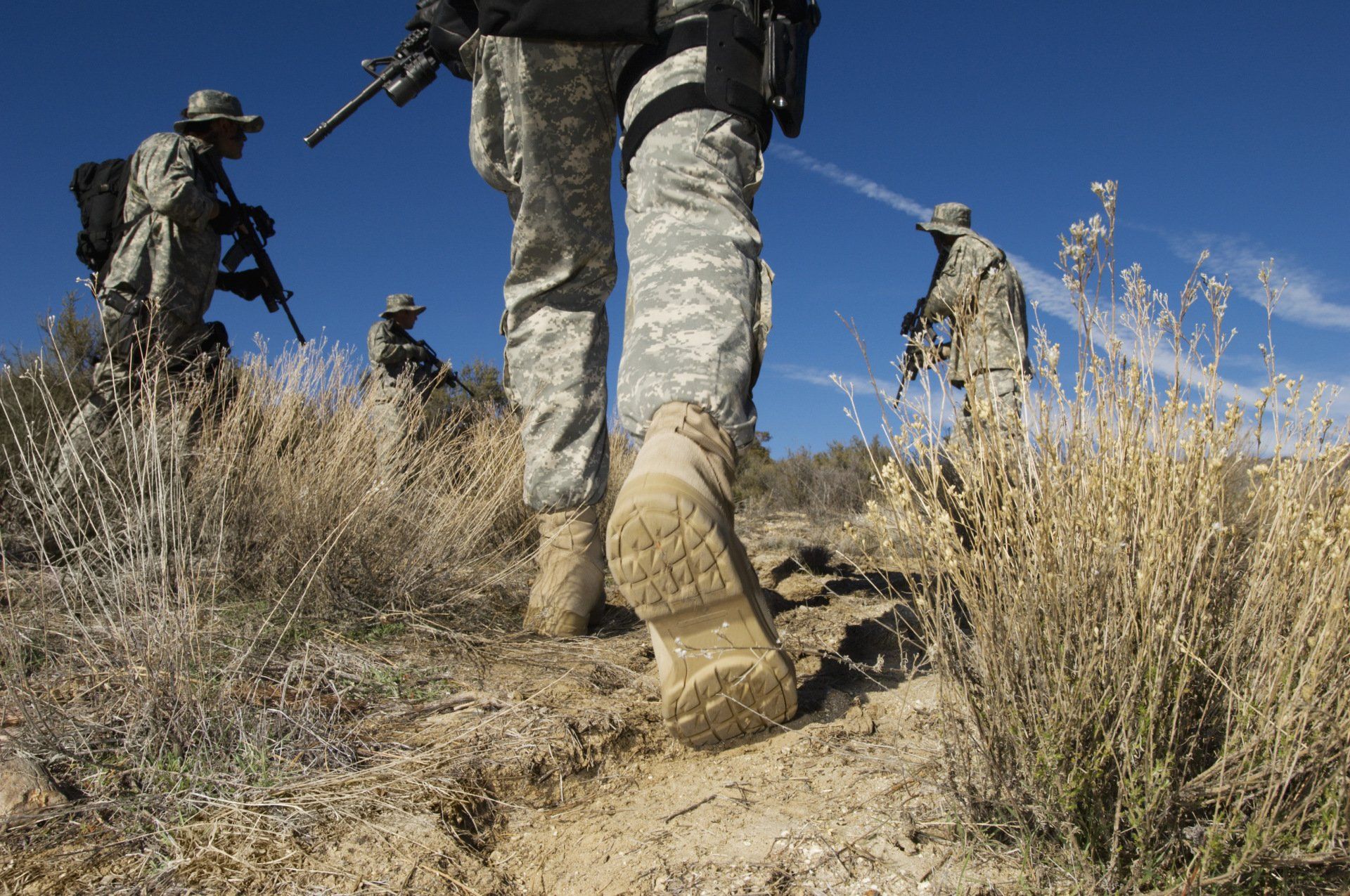Blog Post
Are You a Military Contractor? How to Keep Your Deployed Teams Safe
- By websitebuilder
- •
- 10 Sep, 2018
- •

Even though employees of military contractors sometimes act like soldiers, they're still civilians — many of whom have actually served in uniform. As with any solider or civilian, they have families who rely on not just the income that comes from their job but on the role that they play in their family units as well.
Although working in war-torn areas is naturally hazardous, contractors can still take steps to make sure that their employees return home from work deployments safely.
Although working in war-torn areas is naturally hazardous, contractors can still take steps to make sure that their employees return home from work deployments safely.
Train Your Employees Like the Soldiers They Once Were
In the military, soldiers learn that training is essential. Boot camp acts as a starter course where military personnel train long and hard. That training gives them the basic skills that they need to perform in the field.
However, their training doesn't end there; they keep it up throughout their career. By doing so, they continue to hone their skill set and add to it. This ongoing training strengthens them as individuals and, by extension, their team as a whole.
Likewise, your employees' training shouldn't end once they become a civilian — it should continue. Keep them up-to-date with the latest weapons, technology, and skills that they need to do the work you need them to do. If they're put in a life-risking scenario, their very lives might depend on their ability to perform in that situation.
However, their training doesn't end there; they keep it up throughout their career. By doing so, they continue to hone their skill set and add to it. This ongoing training strengthens them as individuals and, by extension, their team as a whole.
Likewise, your employees' training shouldn't end once they become a civilian — it should continue. Keep them up-to-date with the latest weapons, technology, and skills that they need to do the work you need them to do. If they're put in a life-risking scenario, their very lives might depend on their ability to perform in that situation.
Provide Shelter & Proper Nutrition
Because your teams could end up being sent to a variety of locations — such as Africa, South America, or the Middle East — at any time of the year, they may be exposed to diverse climates. Whether they're in the freezing cold or blazing heat, they need shelters that can handle those conditions.
These shelters ensure that they're not continuously exposed to the elements in ways that could harm their health, either temporarily or permanently.
Speaking of health, it's important to provide your teams with nutritional food. Don't just rely on MRE-style food. As often as possible, find ways to source fresh protein, fruits, vegetables, and fiber. To help your team members build lean muscle and become more energized, GoArmy.com has a few suggestions of what to include in a diet:
These shelters ensure that they're not continuously exposed to the elements in ways that could harm their health, either temporarily or permanently.
Speaking of health, it's important to provide your teams with nutritional food. Don't just rely on MRE-style food. As often as possible, find ways to source fresh protein, fruits, vegetables, and fiber. To help your team members build lean muscle and become more energized, GoArmy.com has a few suggestions of what to include in a diet:
- High-protein but low-fat items
- Raw or steamed vegetables
- Whole-grain breads
- Good, non-trans fats
Allow Time for Recuperating Between Deployments
Your employees aren't robots. They can't go on mission after mission and be considered physically and mentally okay. They need time to rest between deployments.
Of course, this duration depends on how long they've been out on assignment. If they've been gone for a month, for example, you might only need to give them four to five days. If they've been gone for multiple months, then two weeks might be more appropriate.
During this break, they can spend time with their families, do the things that they like to do, recover from their exhaustion, and heal from any minor injuries that they might have accrued during their last work assignment. When they're given time to recuperate, your employees will be back on the job ready to handle anything that is thrown at them.
Taking care of your employees is vital to their safety. Although most of this responsibility will be up to you and your organization's leadership, AvioTech Ltd. is willing to help where we can. Call us today, and we'll get you set up with a military shelter that will keep your employees safe from any climate condition.
Of course, this duration depends on how long they've been out on assignment. If they've been gone for a month, for example, you might only need to give them four to five days. If they've been gone for multiple months, then two weeks might be more appropriate.
During this break, they can spend time with their families, do the things that they like to do, recover from their exhaustion, and heal from any minor injuries that they might have accrued during their last work assignment. When they're given time to recuperate, your employees will be back on the job ready to handle anything that is thrown at them.
Taking care of your employees is vital to their safety. Although most of this responsibility will be up to you and your organization's leadership, AvioTech Ltd. is willing to help where we can. Call us today, and we'll get you set up with a military shelter that will keep your employees safe from any climate condition.
Share
Tweet
Share
Mail
231.828.6888
Our Location
6951 Holton Rd
Twin Lakes, MI 49457
Accreditation
ISO 9001:2015
NIST SP 800-171


